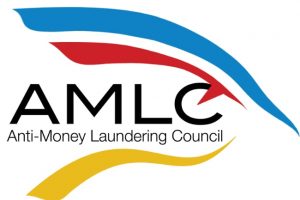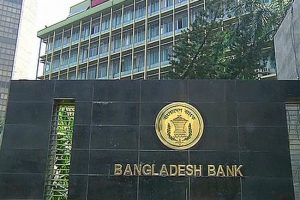 Earlier this year, Philippine lawmakers voted in favor of proposed amendments to the country’s anti-money laundering law, extending its reach to the country’s proliferating gambling industry, including internet gambling operations and casinos on cruise ships. On Friday last week, it became clear that the new anti-money laundering framework titled Implementing Rules and Regulations (IRR) of Republic Act No. 10927 is to come into effect on 4th November. The new rules include stricter due diligence procedures and improved identification systems. According to the latest updates, casinos are required to report all suspicious transactions, which are taking place within the property’s borders to the Philippine Anti-Money Laundering Council (AMLC).
Earlier this year, Philippine lawmakers voted in favor of proposed amendments to the country’s anti-money laundering law, extending its reach to the country’s proliferating gambling industry, including internet gambling operations and casinos on cruise ships. On Friday last week, it became clear that the new anti-money laundering framework titled Implementing Rules and Regulations (IRR) of Republic Act No. 10927 is to come into effect on 4th November. The new rules include stricter due diligence procedures and improved identification systems. According to the latest updates, casinos are required to report all suspicious transactions, which are taking place within the property’s borders to the Philippine Anti-Money Laundering Council (AMLC).
The 23-page document is developed in coordination with AMLC, known to be the anti-money laundering unit of the nation’s Central Bank, the Philippine Amusement and Gaming Corp. (PAGCOR), the Cagayan Economic Zone Authority, the Aurora Pacific Economic Zone and Freeport Authority. Under the new rules, casino operators are obliged to introduce their own internal money-laundering prevention systems complied with the standard form of know your customer database (KYC), which provides detailed information about the customers.
What do the New Rules Include
 The new law is to target not only land-based casinos, but also online and ship-based gambling operators. Casinos are required to implement a system, which is to monitor potential dirty money deals and terrorist financing links. Compliance officers, supervised by a senior management will be responsible to stay vigilant for signs of unlawful activities.
The new law is to target not only land-based casinos, but also online and ship-based gambling operators. Casinos are required to implement a system, which is to monitor potential dirty money deals and terrorist financing links. Compliance officers, supervised by a senior management will be responsible to stay vigilant for signs of unlawful activities.
With the extended anti-money laundering law, the casino operators are also required to install a system, which is to provide essential information regarding the casino customers, including the source of funds, risk profile, and reasonable account activity. Under the new measures, operators are also required to utilize customer identification processes and make sure that the players are playing on their own, but not placing bets on behalf of a third-party. Players are obliged to present themselves with their true names and personal documents. In that sense, any nicknames and anonymous accounts are also prohibited.
Casino operators will be also responsible for preparing reports, which are expected to include the personal information and transaction activity about every player. These documents should be preserved by the casino for a time period of at least 5 years. According to the new framework, casinos are also obliged to submit reports to AMLC, reflecting transactions worth PHP5 million or more. Such reports should be submitted between 5 and 15 working days after the money transfer is requested. Last, but not least, casinos should conduct a face-to-face contact with the players, prior to approving any withdrawal requests.
Casinos will have 3 months to sign up with the AMLC’s electronic reporting system from the date that the IRR comes into effect.
What Triggered the Implementation of Tighter Rules
 The Philippines already had an anti-money laundering law, but the country was encouraged to improve its system after the 2016 Bangladeshi bank heist. As it can be recalled, criminals stole U$81 million through the Philippine gaming industry. Consequently, the Philippine government was urged to amend its existing anti-money laundering law and close any loopholes in it. The recently amended law aims at weeding out any illicit activities, which use gambling industry as a channel for their deeds.
The Philippines already had an anti-money laundering law, but the country was encouraged to improve its system after the 2016 Bangladeshi bank heist. As it can be recalled, criminals stole U$81 million through the Philippine gaming industry. Consequently, the Philippine government was urged to amend its existing anti-money laundering law and close any loopholes in it. The recently amended law aims at weeding out any illicit activities, which use gambling industry as a channel for their deeds.


















